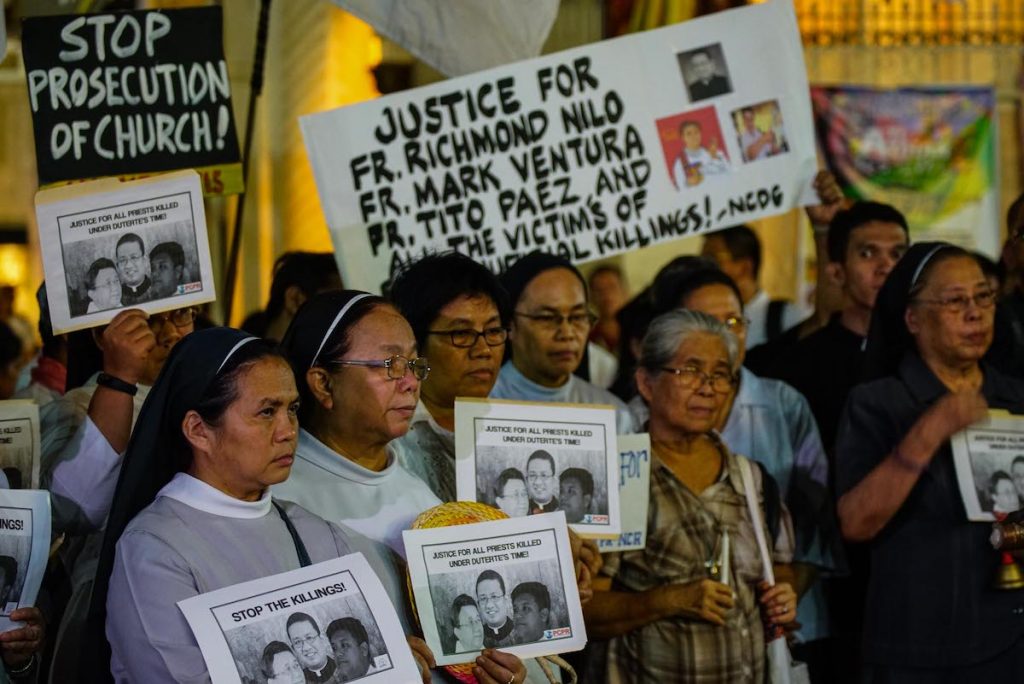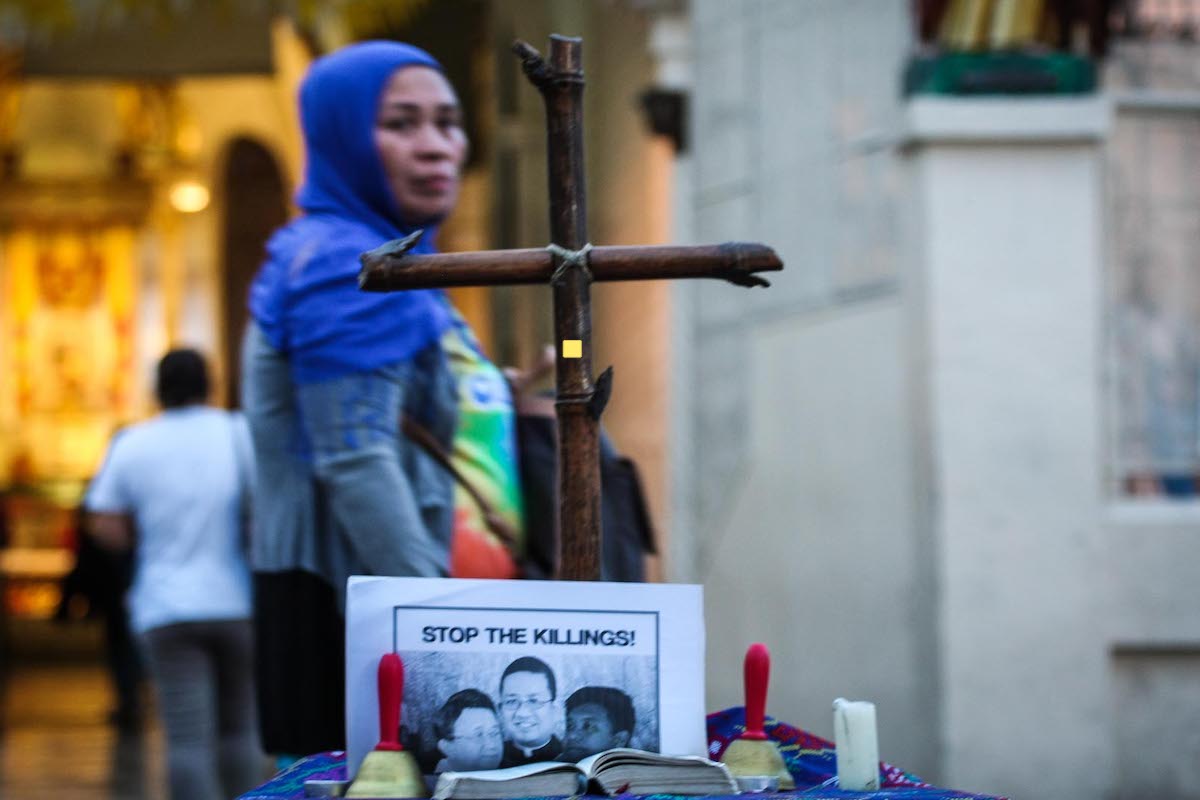On Feb. 17, 1872, three Filipino priests — Mariano Gómez, José Burgos, and Jacinto Zamora — were executed by Spanish colonial authorities on charges of subversion arising from a mutiny.
Remembering their martyrdom, I am reminded of my personal visit to El Salvador in December 1999, when I had the opportunity to visit the Jesuits’ museum in the Universidad Centro Americana.
Entry to the museum brought sight of blood-stained clothes and pictures of slain Jesuits, brutally killed by the Salvadoran military on Nov. 16, 1989. The victims were Fathers Ignacio Ellacuria, Ignacio Martín-Baró, Segundo Montes, Juan Ramón Moreno, Joaquín López y López, and Amando López.
Their two house helpers who took refuge in the residence where the 1989 massacre was perpetrated, were also killed.
I was fortunate to be accompanied by a survivor of the massacre, the late Father Jon de Cortina, who was lucky to spend the night in his parish in Guarjila, thus escaping the killings. He showed me the sniper’s bullet that hit his car four inches above his head.
Father Cortina lived to tell his story and to find hundreds of disappeared children forcibly taken during the war, ultimately reuniting them with their biological families.
The most emblematic crime that occurred during the civil war between the military-led junta and the Farabundo Marti National Liberation Front from 1979 to 1992, the massacre of the six Jesuits and their two house helpers is reminiscent of the execution of Filipino priests Gomez, Burgos and Zamora.
For inciting protests against abusive friars and for campaigning for equal rights among the clergy, they earned the ire of the Spanish authorities. The execution of the priests was one of innumerable crimes in the Philippines that went unpunished during the years of Spanish colonization.
Like the massacre of the Jesuits in El Salvador, the executions of Gomez, Burgos, and Zamora was the start of a series of persecutions of church people in the country that continue to this day.

To recall a few: The killing of Italian priest Tulio Favali in Mindanao; the beheading of Father Nilo Valerio; and the enforced disappearance of Father Rudy Romano.
The most recent violations include the killings of Fathers Marcelito Paez, Mark Ventura, and Richmond Nilo.
While the Jesuit community and Salvadoran civil society have stepped up efforts to bring those behind the massacre to justice, the recent refusal of the American government to grant visas to some of the perpetrators has been perceived as inadequate.
In the words of Ester Alvarenga, former director of the Asociacion Pro Busqueda de Ninas y Ninos Desaparecidos: “It is just a show. The intellectual authors as well as those who obeyed their orders roam free.”
Justice is far from sight.
El Salvador shares similar stories of persecution, such as the assassination of Father Rutillo Grande in 1977, and the brutal assassination in 1980 of no less than Archbishop Oscar Arnulfo Romero, now known as St. Romero, and the murder of four Maryknoll nuns.
These are dark episodes in the distinct histories of the Philippines and El Salvador, both predominantly Catholic countries, both facing economic poverty resulting in insurgency, human rights violations, killings, torture, and enforced disappearances.
The glaring impunity is challenging us to reflect, ponder, and act. Against the backdrop of repression and resistance, progressive church people in these countries suffered the consequences of their prophetic ministry.
The men and women of the cloth in the Philippines and El Salvador, who, having followed the footsteps of the crucified Christ, have suffered different forms of crucifixion.
In their genuine commitment to their prophetic ministry, they served as voices of the voiceless and gave witness to the Gospel. They have laid down their lives for the poor.
In doing so, they have become paragons for the many members of the Church who continue to struggle for relevance.
“Amen, amen, I say to you, unless a grain of wheat falls to the ground and dies, it remains just a grain of wheat; but if it dies, it produces much fruit. Whoever loves his life loses it, and whoever hates his life in this world will preserve it for eternal life,” says the evangelist John.
Mary Aileen D. Bacalso is former secretary general of the Asian Federation Against Involuntary Disappearances. For her work against enforced disappearances, she was awarded the 2019 Franco-German Ministerial Prize for Human Rights and the Rule of Law, and the Argentinian Government awarded her the Emilio F. Mignone International Human Rights Prize in 2013.
The views expressed in this article are the opinions of the author and do not necessarily reflect the editorial stance of LiCAS.news.







